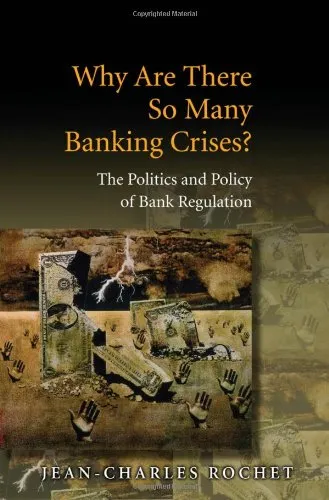Why Are there So Many Banking Crises?
4.6
Reviews from our users

You Can Ask your questions from this book's AI after Login
Each download or ask from book AI costs 2 points. To earn more free points, please visit the Points Guide Page and complete some valuable actions.Related Refrences:
Almost every country in the world has sophisticated systems to prevent banking crises. Yet such crises--and the massive financial and social damage they can cause--remain common throughout the world. Does deposit insurance encourage depositors and bankers to take excessive risks? Are banking regulations poorly designed? Or are banking regulators incompetent? Jean-Charles Rochet, one of the world's leading authorities on banking regulation, argues that the answer in each case is "no." In Why Are There So Many Banking Crises?, he makes the case that, although many banking crises are precipitated by financial deregulation and globalization, political interference often causes--and almost always exacerbates--banking crises. If, for example, political authorities are allowed to pressure banking regulators into bailing out banks that should be allowed to fail, then regulation will lack credibility and market discipline won't work. Only by insuring the independence of banking regulators, Rochet says, can market forces work and banking crises be prevented and minimized. In this important collection of essays, Rochet examines the causes of banking crises around the world in recent decades, focusing on the lender of last resort; prudential regulation and the management of risk; and solvency regulations. His proposals for reforms that could limit the frequency and severity of banking crises should interest a wide range of academic economists and those working for central and private banks and financial services authorities.
Free Direct Download
You Can Download this book after Login
Accessing books through legal platforms and public libraries not only supports the rights of authors and publishers but also contributes to the sustainability of reading culture. Before downloading, please take a moment to consider these options.
Find this book on other platforms:
WorldCat helps you find books in libraries worldwide.
See ratings, reviews, and discussions on Goodreads.
Find and buy rare or used books on AbeBooks.
1270
بازدید4.6
امتیاز0
نظر98%
رضایتReviews:
4.6
Based on 0 users review
Questions & Answers
Ask questions about this book or help others by answering
Please login to ask a question
No questions yet. Be the first to ask!














